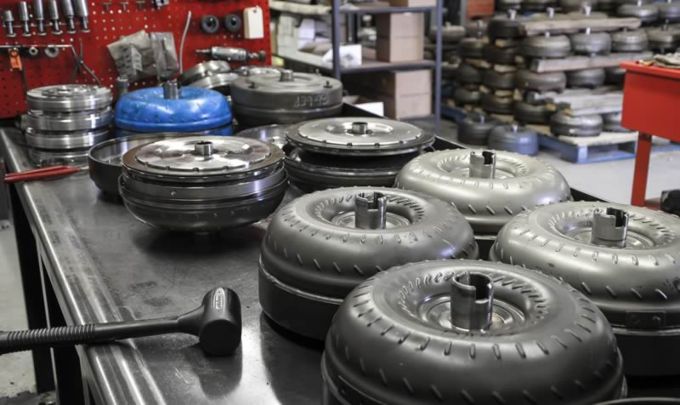


It could be as simple as the transmission fluid needs to be replaced or an issue in the computer system requires either a system reset or an update. And what’s just as concerning, consumers have said that the “Transmission Failure” indicator light does not illuminate or warn them that there is an issue with the transmission.īecause the transmission component is complex, there may be many reasons for these complaints. Other complaints include a loud thumping noise as the car shifts, decreased speed while driving, and an overall jerky ride. Consumers have also noted that their Bimmer will jerk while downshifting or act as if the transmission slipped a few gears. Rough shifting has been a consistent complaint and the most telling woe.
#Bmw torque converter problems manual
The latest models of the BMW 5 Series sedans, which began its production in 2010, have encountered some transmission issues affecting both the manual and automatic versions. Series 5 Transmission Problems Commonly Reported To shift or not shift is a personal preference, but unless you’re living abroad, we tend to prefer the ease and convenience of the automatic.

Today, only about two percent of new cars sold in America come with a manual transmission.

we prefer automatic, however there are some driving enthusiasts that prefer the connection to the car that a manual transmission offers. As a previous generation, the Series 5 BMW does offer a 6-speed manual option, in addition to the popular 6-speed automatic. For the most part, BMW has done away with the manual transmission, but there are still a few offering the stick: 230i coupe, M240i coupe, M2, 430i, 440i and M4. Unless you’re looking for an older BMW, manual transmissions are limited in newer Bimmers. In an automatic transmission the same process is applied but done so automatically with the help of a torque converter. In a manual transmission, you’ll start in first gear and as you accelerate, you’ll shift into second, then third (and so on) as you increase speed. The transmission facilitates this process by changing the gears of an engine. Regardless of whether the car has a manual transmission or an automatic one, gears need to change in order to move the car forward and accelerate. These gears and how they shift from one to the other are important because they tell your car how much power to draw from the engine, applying that power to the wheels of your car so that it can accelerate properly. It’s a metal case that houses a series of gears, which is where the name “gearbox” box comes from when referencing the transmission. The transmission is one of the most complicated components of your car. We’ll explore what those common issues are and what you need to be on the lookout for in order to diagnose whether your Bimmer is possibly suffering from a transmission problem. BMWs are known for having excellent engines and transmissions however, some consumers have reported transmission problems with the BMW Series 5 models, specifically. The transmission plays an important role in the reliability of any vehicle, so it’s a key item that any consumer should look at when inspecting a car for purchase. The transmission is responsible for changing the gears of the engine, thereby making the car go, and for BMWs specifically – get going fast (if that’s your driving style). Engines and transmissions go hand in hand. While its engines are paramount to the BMW’s performance, so is the transmission. What You Need to Know and be on the Lookout Forįor many consumers, BMW cars have become synonymous with luxury and elegance, as well as performance and craftsmanship.


 0 kommentar(er)
0 kommentar(er)
